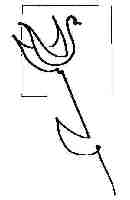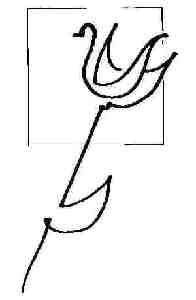|
|
|
~ there are
many species of hibiscus
~ what we think of as hibiscus flowers come from species
that have been cultivated/bred to be ornamental*
~ the tea, though,
is made from the flowers of Hibiscus sabdariffa.
The tea, and this species of hibiscus, has many names...
these include: roselle, Jamaican sorrel** (because
it is sour)
~ the tea is tart/sour. and has a red color
~ "It has
been claimed that sour teas derived from Hibiscus sabdariffa
may lower blood pressure" (wiki)
(other possible health benefits are listed below)
|
|
* e.g. Hibiscus
syriacus and Hibiscus rosa-sinensis, or syrian and chinese hibiscus
** unlike
sorrel, hibiscus does not contain oxalic acid (and is therefore does
not present the danger of generating or exacerbating kidney stones)
|
|
|
|
wikisays
Hibiscus is a genus
of flowering plants in the mallow family, Malvaceae. The
genus is quite large, comprising several hundred species that
are native to warm temperate, subtropical and tropical regions throughout
the world. Member species are renowned for their large, showy flowers
and those species are commonly known simply as "hibiscus",
or less widely known as rose mallow.
The genus includes both annual and perennial herbaceous plants, as well
as woody shrubs and small trees. .,.
Several species are widely cultivated as ornamental plants, notably
Hibiscus syriacus and Hibiscus rosa-sinensis.[5]
A tea made from hibiscus flowers is known by many names around the world
and is served both hot and cold. The beverage is known for its red color,
tart flavor, and vitamin C content.
Hibiscus tea is a herbal tea made as an infusion from crimson or deep
magenta-coloured calyces (sepals) of the roselle(Hibiscus sabdariffa)
flower. It is consumed both hot and cold.
It has a tart, cranberry-like flavour, and sugar or honey is often added
to sweeten it. The tea contains vitamin C and mineralsand is used traditionally
as a mild medicine ...
Hibiscus tea contains 15-30% organic acids, including citric
acid, malic acid, and tartaric acid. {and
vitamin C} It also contains acidic
polysaccharides and flavonoid glycosides, such as cyanidin and delphinidin,
that give it its characteristic deep red colour.
The drink is sometimes called roselle (a name for the flower) or rosella
(Australia); sorrel in Jamaica, Belize, Barbados, Guyana, Dominica,
and Trinidad and Tobago; red sorrel in the wider Caribbean; and Agua/Rosa
de Jamaica or simply Jamaica in the United States, México, and
Central America. It is also known as "Zobo" or Bissap in African
countries like Nigeria.
|
|
|
| |
|
from other on-line sources
;...
Health Benefits of Hibiscus
Tea
~ Manages Blood Pressure
~ Lowers Cholesterol
~ Protects Liver
~ Anti-cancer Properties
~ Anti-inflammatory & Antibacterial Agent
~ Relieves Menstrual Pain
~ Acts as Antidepressant Agent
~ Improves Digestion
~ Satiates Thirst
~ Weight Loss
" Blood Pressure: The health benefits of hibiscus tea include
lowering blood pressure (anti-hypertensive property). Therefore, it
is not recommended for people who already have low blood pressure,
a condition called hypotension. It may cause faintness, dizziness,
and can even damage the heart or brain if consumed by anyone with
low blood pressure.
" Pregnancy and Fertility: Hibiscus tea is not recommended for
pregnant women, particularly due to its emmenagogic effects which
may stimulate menstruation or blood flow in the uterus or pelvic region.
For those undergoing hormonal treatments or taking birth control pills,
it is recommended to consult your health specialist regarding consumption
of hibiscus tea.
" Hallucinatory Effect: Some people may feel intoxicated or experience
hallucinations after drinking hibiscus tea. Therefore, be cautious
until you know how your body reacts to the tea. Don't drive a car
or try anything particularly dangerous until you know what its effects
are on your system.
|
|
|




